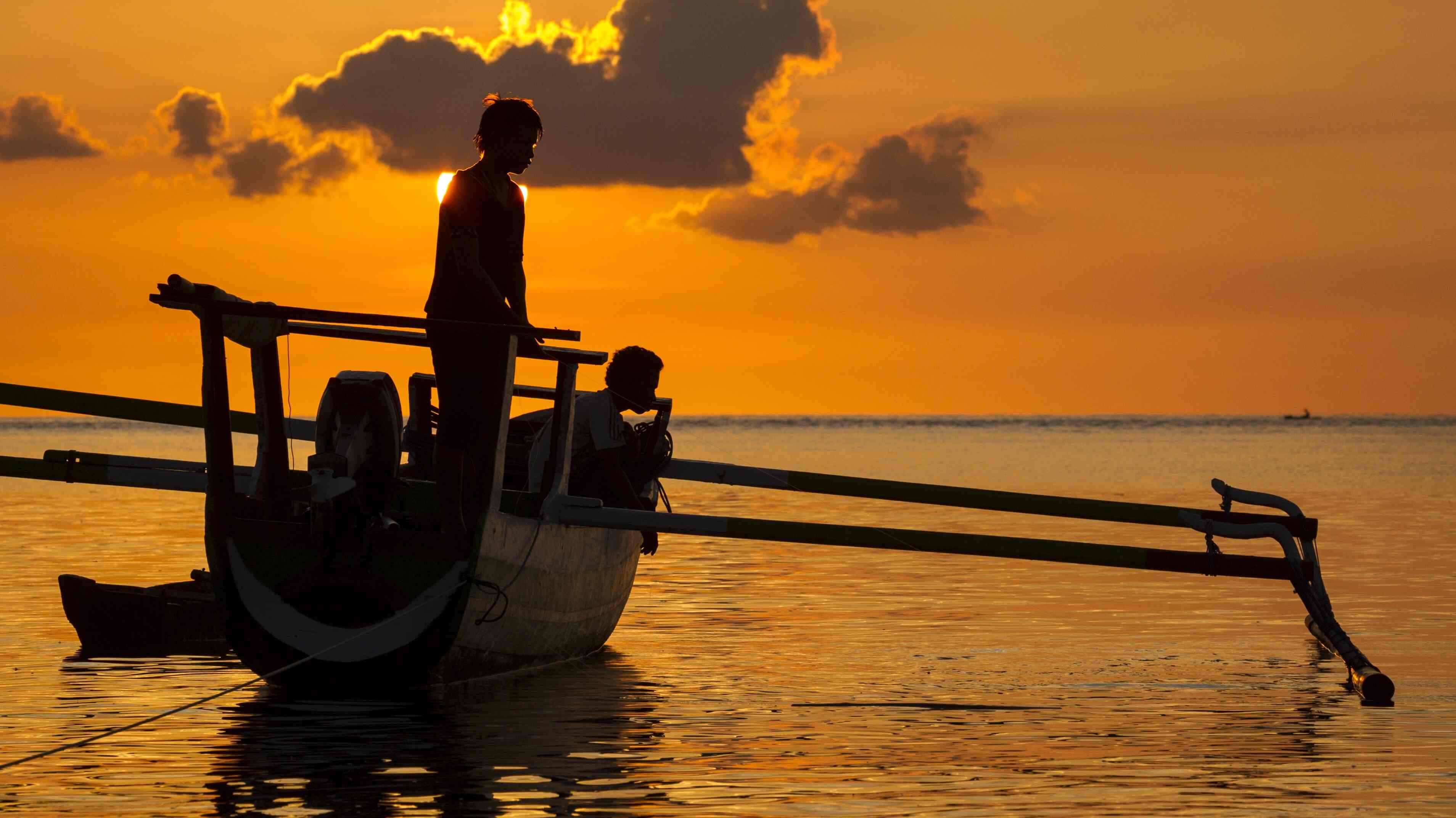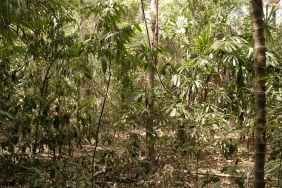ANOTHER ESTUARINE CROCODILE FOUND DEAD ENTANGLED IN FISHERMAN'S NET
By Dwi Suprapti
A fisherman in Paloh, West Kalimantan, named Rasidin, was shocked by the discovery of a crocodile, known as 'jalu' in the local language in Paloh, caught in his net. The crocodile was found entangled in the net on April 18, 2014 at around 08:00 a.m., just as Rasidin was about to lift the net after it had been set overnight.
The estuarine crocodile (Crocodilus porosus) was found dead, with its mouth gaping and entangled in the net. Rasidin estimated that the crocodile was looking for food, because the same net also found a snapper that was no longer in one piece.
Rasidin was quite surprised because the crocodile was quite large, with a body length of 2.66 meters and weighing more than 100 kg. "This is the fifth and largest crocodile I have ever caught during my time as a pile net fisherman," Rasidin said.
Rasidin hopes that incidents like this will not happen again. "In addition to crocodiles being close relatives of humans, this incident caused my net to be damaged along 1 thread (30 meters) due to the rolling of the crocodile in the net, from head to toe," continued the 30-year-old man.
Rasidin is a fisherman who catches fish using a nylon net. He has 6 threads of nets with a net depth of 3 meters so that the total length of the nylon trawl is 180 meters with 4-inch meshes. "I have more than one nylon trawl," he said. Rasidin always sets the pile net in the Merbau River at 3 p.m. every day, and then lifts it at 8 a.m. the next day.
According to the man who has been a fisherman since the second grade, there is a family tradition that does not allow crocodiles to be seen, let alone caught or found dead. "According to Bugis beliefs, crocodiles are still classified as relatives. It is said that the ancestors of the Bugis people saved themselves by disguising themselves as crocodiles. Because of this, humans are not allowed to kill crocodiles," Rasidin explains. "Even if one is accidentally caught or found dead, the crocodile must be buried like family," he continued.
Radisin's explanation was not limited to words. After removing the crocodile from the net, Rasidin took the crocodile on a motorcycle to his house where it was cleaned and wrapped in a white cloth, then buried in a nearby Muslim cemetery.
The capture of this estuarine crocodile is the second incident in the last 6 months in Paloh Estuary, where previously an estuarine crocodile was accidentally caught (bycatch) by Liku fishermen in late 2013.
"This bycatch phenomenon shows the need for further research on the condition of waters and fisheries in Paloh Sub-district, as well as encouraging the Sambas Regency Government to regulate the zoning policy of coastal waters," said Hermayani Putera, Kalimantan Regional Leader of WWF-Indonesia. "By regulating the policy, fishermen can still get fish and protected animals are still guaranteed," she continued.
The death of the crocodile in Rasidin's net adds to the baseline data of bycatch in Paloh, which is quite high. Besides crocodiles, other animals that are often categorized as bycatch in Paloh are turtles and dolphins.





